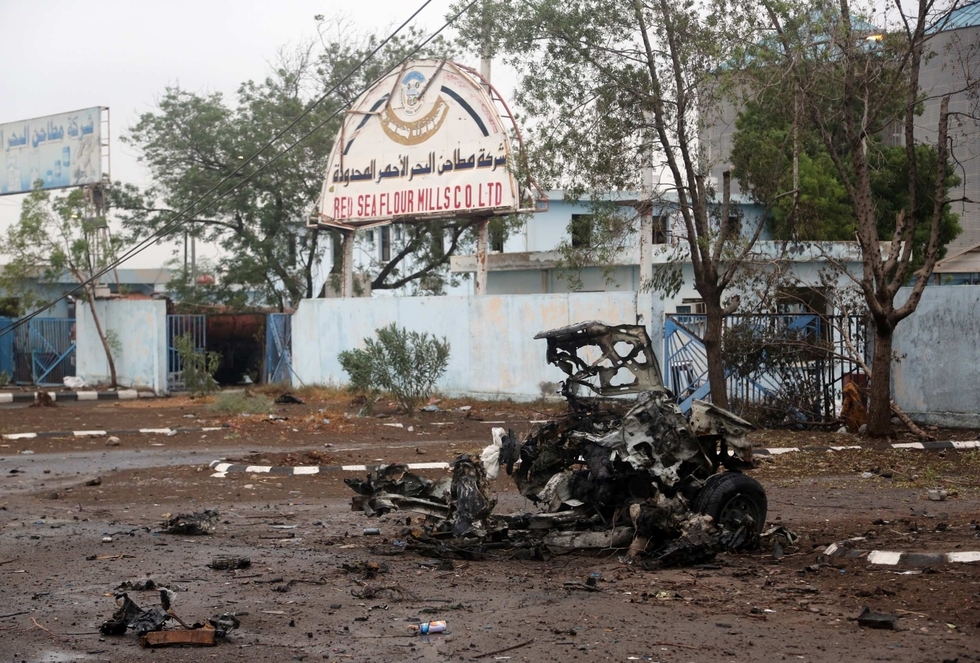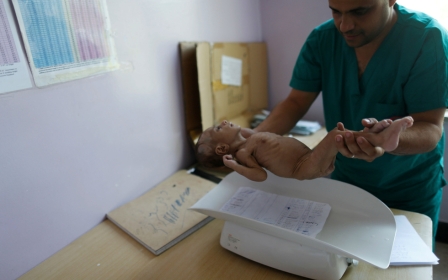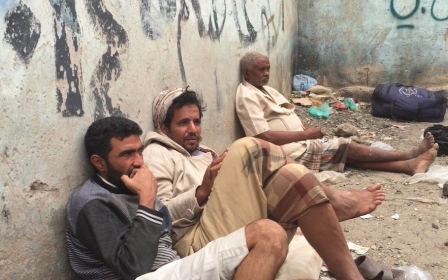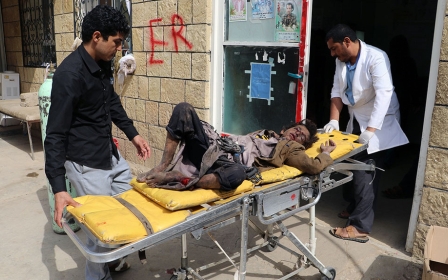Germany approves arms sale to Saudi Arabia despite Yemen-related ban

Germany, one of the world’s five biggest arms exporters, sanctioned a delivery of weapons to Saudi Arabia despite it saying it would halt arms sales to countries involved in the war in Yemen.
The German government approved a batch of four artillery positioning systems, Economy Minister Peter Altmaier said in a letter to lawmakers, according to the German national broadcaster DW. The vehicle-mounted systems can locate enemy fire, enabling precise counter-strikes.
A Saudi-led intervention in Yemen, which began in 2015, has drawn global criticism as the kingdom is accused of war crimes and a deteriorating humanitarian situation. According to the United Nations, more than 8 million Yemenis are on the brink of famine and require the world’s most urgent relief effort.
This delivery of weapons is the first from Berlin to Riyadh since Chancellor Angela Merkel’s coalition agreed in March to a Yemen-related ban.
It’s also the second deal in a week that involves a retraction of the Yemen-related ban by a European country.
After suspending the sale of 400 laser-guided bombs due to concerns over the Saudi role in Yemen, Spain announced it will proceed with the deal to honour another contract made in 2015 by a previous government, the country’s Foreign Minister Joseph Borrell said last Thursday.
Spanish media reported last week that Saudi Arabia was planning to retaliate against the cancellation of the bomb contract by scrapping a warship contract worth $2.2bn that would create 6,000 jobs in Spain - as the European country struggles with a 16 percent unemployment rate.
Other European countries that have suspended the sale of arms that may be used in the war in Yemen include Finland, Norway and Belgium.
Saudi Arabia’s military expenditure was ranked the world’s third largest in 2017, according to the Stockholm International Peace Research Institute (SIPRI). Replacing Russia, the kingdom spent $69.4bn.
A Saudi-led coalition intervened in Yemen's war in 2015 in a bid to restore the country's internationally recognised government, led by Abd Rabbuh Mansour Hadi, who was ousted by the Iran-aligned Houthi movement.
A report launched on 28 August by the Group of Eminent Experts on Yemen (YemenGEE), which was established in 2017 by the UN High Commissioner for Human Rights, concluded that individuals in the governments of Yemen, Saudi Arabia and the United Arab Emirates could be liable for acts that amount to international crimes “subject to determination by an independent and competent court”.
“There is little evidence of any attempt by parties to the conflict to minimise civilian casualties. I call them to prioritise human dignity in this forgotten conflict,” said Kamel Jendoubi, chairperson of JemenGEE.
New MEE newsletter: Jerusalem Dispatch
Sign up to get the latest insights and analysis on Israel-Palestine, alongside Turkey Unpacked and other MEE newsletters
Middle East Eye delivers independent and unrivalled coverage and analysis of the Middle East, North Africa and beyond. To learn more about republishing this content and the associated fees, please fill out this form. More about MEE can be found here.




